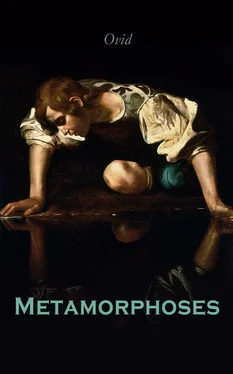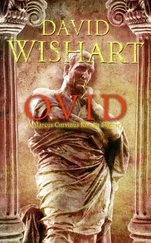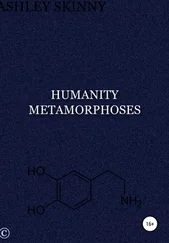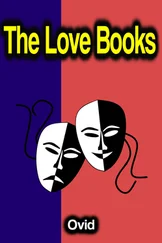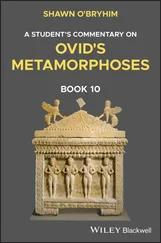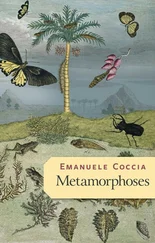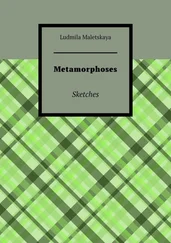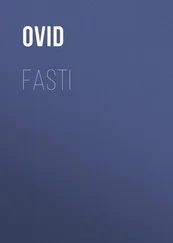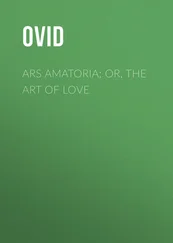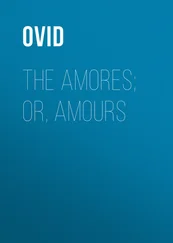The keeper appointed by Juno, charmed by the sound of this new contrivance, says, “Whoever thou art, thou mayst be seated with me upon this stone; for, indeed, in no other place is the herbage more abundant for thy flock; and thou seest, too, that the shade is convenient for the shepherds.” The son of Atlas sat down, and with much talking he occupied the passing day with his discourse, and by playing upon his joined reeds he tried to overpower his watchful eyes. Yet the other strives hard to overcome soft sleep; and although sleep was received by a part of his eyes, yet with a part he still keeps watch. He inquires also (for the pipe had been but lately invented) by what method it had been found out.
The story of the Metamorphosis of Io has been already enlarged upon in the Explanation of the preceding Fable. It may, however, not be irrelevant to observe, that myths, or mythological stories or fables, are frequently based upon some true history, corrupted by tradition in lapse of time. The poets, too, giving loose to their fancy in their love of the marvellous, have still further disfigured the original story; so that it is in most instances extremely difficult to trace back the facts to their primitive simplicity, by a satisfactory explanation of each circumstance attending them, either upon a philosophical, or an historical principle of solution.
Pan, falling in love with the Nymph Syrinx, she flies from him; on which he pursues her. Syrinx, arrested in her flight by the waves of the river Ladon, invokes the aid of her sisters, the Naiads, who change her into reeds. Pan unites them into an instrument with seven pipes, which bears the name of the Nymph.
Then the God says, “In the cold mountains of Arcadia, among the Hamadryads of Nonacris, 106there was one Naiad very famous; the Nymphs called her Syrinx. And not once alone had she escaped the Satyrs as they pursued, and whatever Gods either the shady grove or the fruitful fields have in them . In her pursuits and her virginity itself she used to devote herself to the Ortygian Goddess; 107and being clothed after the fashion of Diana, she might have deceived one, and might have been supposed to be the daughter of Latona, if she had not had a bow of cornel wood, the other, a bow of gold; and even then did she sometimes deceive people . Pan spies her as she is returning from the hill of Lycæus, and having his head crowned with sharp pine leaves, he utters such words as these;” it remained for Mercury to repeat the words, and how that the Nymph, slighting his suit, fled through pathless spots, until she came to the gentle stream of sandy Ladon; 108and that here, the waters stopping her course, she prayed to her watery sisters, that they would change her; and how that Pan, when he was thinking that Syrinx was now caught by him, had seized hold of some reeds of the marsh, instead of the body of the Nymph; and how , while he was sighing there, the winds moving amid the reeds had made a murmuring noise, and like one complaining; and how that, charmed by this new discovery and the sweetness of the sound, he had said, “This mode of converse with thee shall ever remain with me;” and that accordingly, unequal reeds being stuck together among themselves by a cement of wax, had since retained the name of the damsel.
This appears to have been an Egyptian fable, imported into the works of the Grecian poets. Pan was probably a Divinity of the Egyptians, who worshipped nature under that name, as we are told by Herodotus and Diodorus Siculus. As, however, according to Nonnus, there were not less than twelve Pans, it is possible that the adventure here related may have been supposed to have happened to one of them who was a native of Greece. He was most probably the inventor of the Syrinx, or Pandæan pipe, and, perhaps, formed his first instrument from the produce of the banks of the River Ladon, from which circumstance Syrinx may have been styled the daughter of that river.
Mercury, having lulled Argus to sleep, cuts off his head, and Juno places his eyes in the peacock’s tail.
The Cyllenian God 109being about to say such things, perceived that all his eyes were sunk in sleep, and that his sight was wrapped 110in slumber. At once he puts an end to his song, and strengthens his slumbers, stroking his languid eyes with his magic wand. There is no delay; he wounds him, as he nods, with his crooked sword, where the head is joined to the neck; and casts him, all blood-stained, from the rock, and stains the craggy cliff with his gore.
Argus, thou liest low, and the light which thou hadst in so many eyes is now extinguished; and one night takes possession of a whole hundred eyes. The daughter of Saturn takes them, and places them on the feathers of her own bird, and she fills its tail with starry gems.
The ancient writers, Asclepiades and Pherecydes, tell us, that Argus was the son of Arestor. He is supposed by some to have been the fourth king of Argos after Inachus, and to have been a person of great wisdom and penetration, on account of which he was said to have a hundred eyes. Io most probably was committed to his charge, and he watched over her with the greatest care.
It is impossible to divine the reason why his eyes were said to have been set by Juno in the tail of the peacock; though, perhaps, the circumstance has no other foundation than the resemblance of the human eye to the spots in the tail of that bird, which was consecrated to Juno. Besides, if Juno is to be considered the symbol of Air, or Æther, through which light is transmitted to us, it is not surprising that the ancients bestowed so many eyes upon the bird which was consecrated to her.
Io, terrified and maddened with dreadful visions, runs over many regions, and stops in Egypt, when Juno, at length, being pacified, restores her to her former shape, and permits her to be worshipped there, under the name of Isis.
Immediately, she was inflamed with rage, and deferred not the time of expressing her wrath; and she presented a dreadful Fury before the eyes and thoughts of the Argive mistress, 111and buried in her bosom invisible stings, and drove her, in her fright, a wanderer through the whole earth. Thou, O Nile, didst remain, as the utmost boundary of her long wanderings. Soon as she arrived there, she fell upon her knees, placed on the edge of the bank, and raising herself up, with her neck thrown back, and casting to Heaven those looks which then alone she could, by her groans, and her tears, and her mournful lowing, she seemed to be complaining of Jupiter, and to be begging an end of her sorrows.
He, embracing the neck of his wife with his arms, entreats her, at length, to put an end to her punishment; and he says, “Lay aside thy fears for the future; she shall never more be the occasion of any trouble to thee;” and then he bids the Stygian waters to hear this oath . As soon as the Goddess is pacified, Io receives her former shape, and she becomes what she was before; the hairs flee from off of her body, her horns decrease, and the orb of her eye becomes less; the opening of her jaw is contracted; her shoulders and her hands return, and her hoof, vanishing, is disposed of into five nails; nothing of the cow remains to her, but the whiteness of her appearance; and the Nymph, contented with the service of two feet, is raised erect on them ; and yet she is afraid to speak, lest she should low like a cow, and timorously tries again the words so long interrupted. Now, as a Goddess, she is worshipped by the linen-wearing throng 112 of Egypt .
Читать дальше
